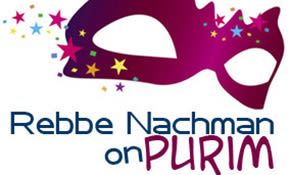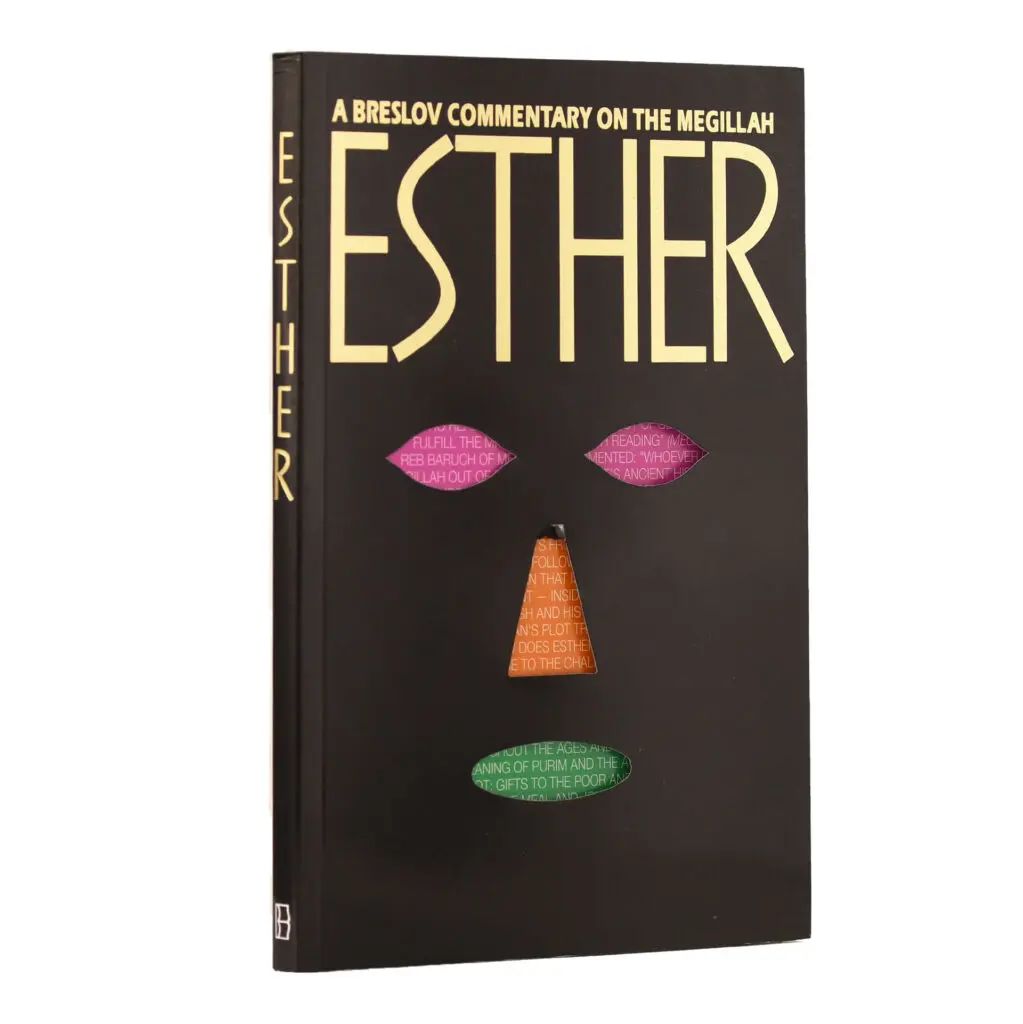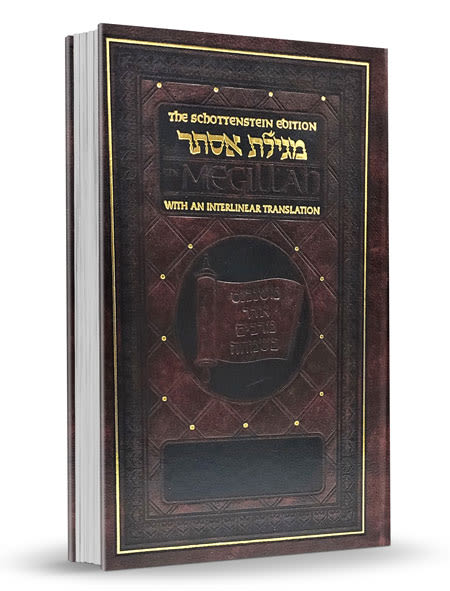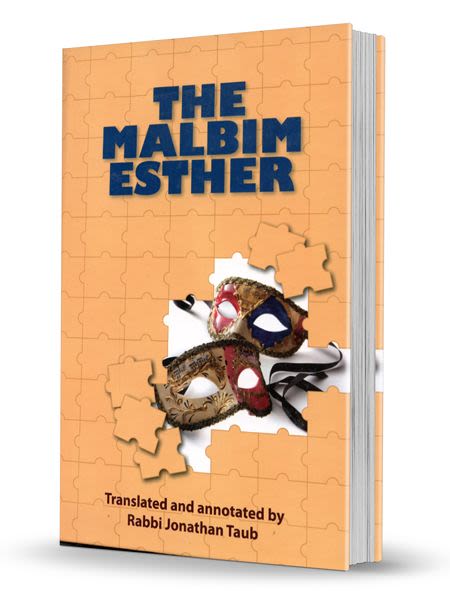
The Road Map to Joy
Our Sages say that when Adar comes in, joy increases. In fact, there is no other month in the Jewish calendar so replete with potential for joy. How can we make that a part of our lives?

Our Sages say that when Adar comes in, joy increases and, in fact, there is no other month in the Jewish calendar so replete with potential for joy.
Yet what exactly is this special joy of Adar, and how can we access it and make it a part of our lives? To understand the joy of Adar, we need to first look at the holiday that embodies this month’s unique characteristics: Purim.
Purim: A Day When ‘Upside Down’ is ‘Right Side Up’
Purim is a day of transformation. On Purim mourning is transformed into laughter as the hidden Hand of God is transformed into a revealed salvation for the Jewish People. Here’s the story, in brief:
After the destruction of the First Temple by the Babylonians, the Jewish people were sent into exile. With time, the might of the Babylonian Empire declined and the Persian Empire took its place as the dominant power in the area.
The Persian king Achashverosh had an advisor called Haman. Although Haman had great power and vast riches, he couldn’t enjoy what he had for one reason: he was obsessed by his hatred of the Jews.
Haman managed to convince King Achashverosh that the Jews were a threat to his kingdom, and a decree was sent out to the entire empire that on the 13th day of Adar all the Jews were to be slaughtered. (Since all the Jews of that time were living under Persian rule, the fulfillment of this decree would have meant the total annihilation of the Jewish people.)
Naturally, when news of the edict reached the Jewish community, they went into shock. The Jews knew that such was the law of the land that once a ruler issued a decree, it could not be revoked. It seemed that there was nothing to be done, except wait for the inevitable destruction.
Yet our Sages say that before God sends an illness, He has already prepared the cure – and such was the case in the Purim story.
Unbeknownst to Haman, while he was busy plotting to destroy the Jews, God was setting in motion a plot to save them. In a fit of drunken rage, Achashverosh had ordered that his first wife be killed. When he regretted his action and decided to remarry, he chose – out of all the thousands of women who were brought before him – a woman called Esther to be his new queen.
Esther “just happened” to be Jewish, and it was no great honor for a Jewish woman to be married to a pagan king – in fact, it was a cause for mourning. Yet her uncle Mordechai, the leader of the Jewish community, advised her to go to the palace and trust in God that there was a reason for her cruel fate. In the meantime, Mordechai advised Esther to keep her identity a secret.
When the edict against the Jews was announced, the reason for Esther’s marriage to Achashverosh was now revealed: she would have to use her position in the palace to avert the decree.
Esther appealed to the king to save her – and her people – from Haman’s plot. King Achashverosh granted her request and he sentenced Haman and his ten sons to death. But there was still one problem: a king could not revoke his own decree. The edict proclaiming that the Jews must be destroyed had already been delivered, and he could not annul it.
Esther and Mordechai, however, refused to be deterred. They argued that there was a way out. The king could send out a new decree – one which said that the Jews could arm and defend themselves – and in this way the Jewish people would be saved. And that is exactly what happened. In most areas of the empire, the non-Jews didn’t dare to lift even a finger against the Jews. In those areas where the non-Jews tried to destroy the Jews, the tables were turned and it was the non-Jews who were destroyed.
Esther and Mordechai established the holiday of Purim to commemorate this great salvation, and in the Megillat Esther they outlined how the holiday should be celebrated: with a festive meal, sending gifts of food to friends (mishloach manot) and giving gifts to the poor (matanot l’evyonim).
Although there are other mitzvot and customs associated with the holiday – such as the Fast of Esther on the day before Purim and the reading of the Megilla on Purim – these three mitzvot are the ones that map out for us the Jewish way to experience true joy.
‘Until You Don’t Know’
The festive meal we are commanded to have on Purim day seems like a perfectly ordinary mitzvah on the surface, because on Shabbat and holidays we are also commanded to honor the day by having a nice meal. Yet the Purim meal is different than any other meal of the year thanks to a unique commandment attached to it: we are obligated to drink – and keep on drinking – until we can’t distinguish the difference between the phrases “Cursed is Haman” and “Blessed is Mordechai.”
On all other days of the year, Judaism prizes mental clarity and the ability to remain in control over one’s thoughts and emotions. Why on Purim do our Sages tell us to get so drunk that we cannot even distinguish between one of the most evil people in the world and one of the most righteous?
Many reasons for this odd mitzvah have been brought down throughout the ages, but Eliyahu Kitov sums it up in nicely in his classic work The Book of Our Heritage, when he comments:
” … it is as if we were saying to God: Even if – Heaven forbid, we no longer know anything of Your ways; even if we no longer know how to distinguish between such great extremes as these; nevertheless we do not despair of salvation, for we seek protection in You alone. Whether we are sober or intoxicated, we do not fear evil, for You are with us forever” (Vol. II, page 88).
At the time of the Purim story, the Jews’ situation couldn’t have been bleaker. Haman – a sworn enemy of the Jewish people – was the second most powerful person in the empire and he had the king wrapped around his little finger. The edict to annihilate the Jews was “written in stone.” A rational analysis of the situation could only conclude that the Jews were doomed.
Yet, in the blink of an eye, the tables were turned.
There was no “rational” reason why Achashverosh changed his mind. He was a ruler who was ruled by his passions, and he could have just as easily decided that he was tired of Esther and glad to have an opportunity to be rid of her. True, Mordechai had once done the king a favor and saved his life, but history shows us that kings often have memory lapses when convenient.
And so we are left with only one reason that can explain why the Jews were saved: it was God’s will.
On Purim, when we are told to take away the mask of “rational thinking” (whether it is in the guise of political analysis or psychological theory), we most clearly see this truth: Our salvation comes from God – and God alone.
When it’s God’s will to protect us and save us from destruction, it doesn’t matter how powerful the enemy appears to be. Whether the enemy is Haman and the Persian king Achashverosh or today’s enemies of Hamas and Hezbollah, terrorist organization’s funded by Iran (modern-day Persia), the enemy is just a puppet in God’s hands, so to speak, and he can’t lift a finger against us unless God decrees it to happen.
Having an absolute trust in the goodness of God and the wisdom of His ways is the bedrock of Jewish belief and the basis of our joy. Without this trust we would have succumbed to our enemies long ago. Yet even though we know how important this trust is, when things get rough it’s easy to get confused and start believing that it’s the enemy who has the ultimate power and not God.
That’s why we need the festive meal on Purim, where we are told – even commanded – to go ahead and get confused. Get so confused that you think Haman will save you and Mordechai, God forbid, will destroy you. Let your thinking get so turned around that the world seems upside down – because it’s only in that moment that you can no longer distinguish between Haman and Mordechai, good from bad and up from down that you begin to approach the real truth of this world. It’s only when you get to the point when you can say “I don’t know” – I don’t know how the situation will be resolved – that you can begin to say “I know” – I know that God has a plan for the world. I know that whatever happens will ultimately be for the best.
As smart as we are, we can never be smart enough to understand God’s ways, and this awareness of our own limitations is what brings us, paradoxically, to Part One of the joy of Purim. On Purim we take off the mask of our supposed power and control and give God “His due”; we openly acknowledge that He is the One Who is in charge of the world. Because we now know that no situation is so impossible that God can’t find a way to help us get out of it, we can be joyous even when facing adversity.
Special Delivery
Thousands of years ago our Sages noted that when the Jewish People are united no enemy can harm us, but when we are weakened by bitter infighting we fall prey to those who would destroy us.
The Jews of the first exile set the pattern for the exile we are experiencing today. Some of the Jews clung to the Torah and did their best to fulfill the mitzvot even in exile. Others were comfortable being in exile and began to take on the ways of the Persian culture. The two groups drifted further and further apart until neither group wanted to have anything to do with the other.
This animosity gave Haman the opening he needed to defame the Jewish people, and he told the king, “There is a certain divided people scattered among the people in all the countries of your kingdom” (Megillat Esther, 3:8).
If the Jews are so divided among themselves, Haman told King Achashverosh, they certainly aren’t going to be loyal to you. The king snapped up the bait, and the plot to destroy the Jews was set in motion.
When did the fortunes of the Jews begin to turn? Only when Esther told Mordechai, “Go, gather all the Jews in Shushan. Fast for me. Don’t eat or drink for three days and nights. I and my handmaidens will also fast. I will go to the king without invitation, and if I die, I die” (Megillat Esther, 4:16).
Why did Esther insist that all the Jews fast on her behalf? She was the Queen of Persia – if she couldn’t persuade the king to save the Jews, did she really think Achashverosh would be impressed by a mass fast?
Obviously, Esther knew it was not Achashverosh who would determine her fate and the fate of the Jewish people. Only God had that power. She also knew that, when pleading with God to avert the evil decree, it wasn’t enough for just the tzaddikim (righteous people) and the leaders of the community to pray and fast. Every Jew’s life was at stake, and so every Jew had to join in the communal effort. But Esther also knew something more.
“Fast for me,” she says, and not “fast for yourselves.” True, your life is also in danger. But don’t cry out to God to only save your life. Plead with God to save every single Jewish life.
Cry out for your family, your friends – but most importantly, put aside your differences and even cry out for those Jews that you don’t agree with and perhaps don’t even like.
The Jews obeyed her order. They cried out as one people to the One God, Who heard their prayer and saved them.
Esther’s plea for unity has been immortalized in the mitzvah of mishloach manot – sending gifts of food to fellow Jews on Purim.
The halacha (law) states that every Jew, even a poor person, is obligated to send a gift to at least one person. The gift must consist of at least two portions of different types of ready-to-eat foods (i.e. cooked or baked dishes, fruit, beverages, sweets, etc.), and you cannot substitute money, books, clothing or the like.
Although a person is required to send just one gift, it is praiseworthy – and customary – to send to as many friends as possible. Some people, however, don’t just limit mishloach manot to friends. They use Purim as an opportunity to repair broken friendships or heal family feuds, and this is one reason why our Sages have compared Purim to Yom Kippurim.
On Yom Kippurim (which is usually translated as the Day of Atonement, but can also mean a Day like Purim), we ask God to forgive us for any wrongs we may have committed during the previous year. But because we know we can’t wipe the slate clean Above until we’ve settled our accounts down in this world, before Yom Kippur begins we go to anyone we have offended and ask them for forgiveness.
The mishloach manot we send on Purim also create goodwill – but with a difference. On Yom Kippur we are motivated by fear of the Divine decree; we ask forgiveness of others because we would like God, in turn, to forgive us. But on Purim we are motivated by love. It is a day when we recognize the importance of friendship and community, and we have no other motive than to thank others for being a part of our life.
Giving and receiving mishloach manot can inspire neighbors to forgive and forget past annoyances and bring far-flung family members closer together. On Purim, employees fete their bosses and students show their appreciation to their teachers. Everyone is encouraged to get in on the act – from children in kindergarten to the leaders of the community – and by the end of the day we have created bonds of friendship that strengthen all of Israel.
Because of the love that is created on this day, the Arizal, the renowned 16th century Kabbalist, said that Purim is even holier than Yom Kippur. And so through the giving and receiving of mishloach manot we reach Part Two of the Jewish conception of joy: the joy that comes from giving to one’s fellow Jews.
Evyonim (The Poor) Calling
According to the Jewish tradition, when God wants to show His love for a Jew, He sends a poor person to that Jew’s door. Why? Giving tzedakah (charity) is one of the highest mitzvot a person can perform. It is a mitzvah that gives more to the giver than the giver can ever give to the recipient because giving tzedakah opens up the Gates of Heaven. It has the power to annul harsh decrees and fulfill prayers for good.
Yet despite the well-known benefits of giving tzedakah, we usually wait for the mitzvah to come to our door, whether it be in the guise of the poor person himself or a fund-raising appeal. There is one day, however, where we take the active part and run to fulfill this mitzvah – Purim.
Third on the list of things that Queen Esther commanded the Jewish People to do to commemorate their salvation was to send gifts of money to the poor – matanot l’evyonim. This mitzvah is different than the regular tzedakah we give throughout the rest of the year, and in order to perform it correctly, the money has to be distributed on the day of Purim. (Usually the money is either raised beforehand or collected at the synagogue after the Megilla reading and then the person in charge distributes the money to the poor.) Although there is no set amount that must be given to fulfill the mitzvah of matanot l’evyonim, we are encouraged to be generous.
Matanot l’evyonim is also different from the regular giving of tzedakah in one more important way. On every other day of the year we are allowed to check if the recipient is worthy of receiving charity (i.e. we can make inquiries to make sure the poor person isn’t lying about his condition). On Purim, however, we are commanded to give, without asking any questions, to everyone who stretches out their hand.
This act of unconditional giving is the reason why our Sages say that Purim is a particularly auspicious day to ask God for whatever it is that we need. Because we don’t question whether a beggar is worthy or not, God also doesn’t stop to inspect our merits when we pray. Everyone can stretch out their hand on Purim and ask God to give them good health, children, a livelihood, spiritual growth, etc. and expect to receive God’s blessings.
(When we pray, however, we need to be careful of what we ask for. Sometimes we think that something we don’t have will solve all our problems – i.e. great wealth – when in fact it can cause us more harm than good. Therefore, we should always remember to add that we want the thing we are
asking for only if it is according to God’s will and for our good. Should we ask for something on Purim that is not for our good, we can be assured that our prayer will be answered in some other way.)
Finally, there is one more important difference between tzedakah and matanot l’evyonim. A very poor person, someone who receives assistance himself, is not obligated to give tzedakah, but on Purim even the very poor have to give at least one gift of matanot l’evyonim. From this we learn a very important principle: There is no such thing as someone being too “poor” to give.
All of us feel “poor” in some aspect of our lives, but we should never let our feelings of inadequacy trick us into believing that we have nothing to give to others. Even if we have spent months groping in the darkness of depression and confusion, when Purim comes we are obligated to reach into the deep pockets of our soul and pull out a few shiny coins – the good points that every person has inside – and give them to others.
Everyone has within him- or herself the ability to give someone else a smile, a kind word or a helping hand. And again, on Purim we are taught not to worry about whether or not the recipient is worthy – the important thing is to give and bring the quality of kindness into the world.
Through performing the mitzvah of matanot l’evyonim – which opens up the Gates of Heaven wider than at any other time of the year – we experience the third component of Jewish joy: The joy of knowing that every single Jew – including ourselves – has something to give to others. We all have the ability to bring kindness, goodness and compassion into the world.
The Joy of Giving
Although Queen Esther gave us three different mitzvot to perform on Purim, if we look closely we will see they share a common theme: On Purim we are obligated to give.
We give to God our thanks for His running the world in the way He does – even though we may not understand His ways. We give to our fellow Jews gifts that express our appreciation for their friendship and loving concern throughout the year. And we give to the poor – who, in turn, remind us that no one is too poor to give and no one is too unworthy to receive.
Since Purim is the happiest day in the Jewish calendar, it becomes obvious that our Sages want to teach something about the true nature of happiness: If you want to be happy, then give.
This of course runs counter to everything we hear in the outside world. Whether the current slogan is “Keeping Up With the Joneses,” “Drugs, Sex and Rock ‘n Roll” or “Greed Is Good,” the message is the same: Happiness is determined by how much you can earn, buy and take from others.
Although we all need a certain level of comfort in order to enjoy our lives – and this comfort level will vary for every person – the acquisition game is a trap. The more we acquire, the emptier we feel, for as our Sages say, ‘No man leaves this world with half his desires fulfilled” (Kohelet Rabba 1:34).
On the other hand, we have all experienced the paradox that when we give something to another – whether it is money, time or some object – we feel full. Why don’t we feel a lack from what we have just given away?
The answer is that giving creates something new in us that fills the void – feelings of love for the person we give to. Rabbi Eliyahu E. Dessler speaks about this phenomenon at length in his work Michtav Me-Eliyahu (translated into English as Strive for Truth!), where he says:
“We usually think it is love which causes giving because we observe that a person showers gifts and favors on the one he loves. But there is another side to the argument. Giving may bring about love for the same reason that a person loves what he himself has created or nurtured: he recognizes in it part of himself. Whether it is a child he has brought into the world, an animal he has reared, a plant he has tended, or even a thing he has made or a house he has built – a person is bound in love to the work of his hands, for in it he finds himself …“If one were only to reflect that a person comes to love the one to whom he gives, he would realize that the only reason the other person seems a stranger to him is because he has not yet given to him; he has not taken the trouble to show him friendly concern. If I give to someone, I feel close to him; I have a share in his being. It follows that if I were to start bestowing good upon everyone I come into contact with, I soon would feel that they are all my relatives, all my beloved ones. I now have a share in them all; my being has extended into all of them” (Part One, pages 126-127, 130).
During Adar we try to reach this exalted state. We give to as many people as we can through our mishloach manot and matanot l’evyonim, and the result is a feeling of unity with all of Am Yisrael (the People of Israel) that is unparalleled on any other day of the year. And through our giving to others we complete the circle and come closer to God, Who shares in our joy, so to speak, by bestowing His blessings on everyone who asks.
***
Libi Astaire is the author of Choose Light! Chassidic Tales for Chanukah, Rosh Hashanah, Sukkos, Passover & Shavuos; Breakfast with Rav Zusha and Other Stories to Wake Up Your Soul; and the award-winning Jewish Regency Mystery Series. Visit her website for more information about these and other books.











Tell us what you think!
Thank you for your comment!
It will be published after approval by the Editor.